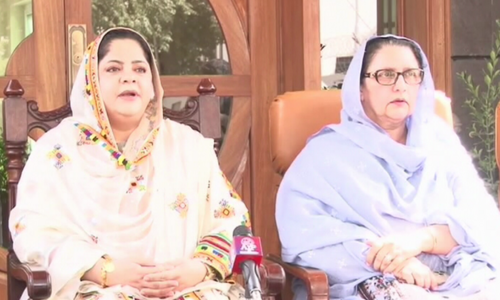KARACHI: The charred remains of the van driver who was killed along with three Chinese academics at Karachi University’s Confucius Institute in a suicide bomb attack on Tuesday were buried on Thursday.
Additional police surgeon at the Jinnah Postgraduate Medical Centre Dr Summaiya Syed said that they took DNA samples of the victim driver, Khalid Nawaz, and sent to a KU lab. The DNA samples matched and the remains were identified as of Khalid Nawaz.
Dr Syed said that DNA samples of the three Chinese teachers also matched and identified.
The JPMC police surgeon said that the mutilated remains of the woman suicide bomber also matched.
“All DNA reports have been completed and sealed for investigation authorities,” said Dr Syed.
The slain driver’s coffin, wrapped in national flag as mark of respect, was transported from Chhipa morgue for funeral.
Under directions of Sindh Chief Minister Syed Murad Ali Shah, the coffin was taken by the administration to Gulshan-i-Maymar, where funeral prayers were held at a local mosque. He was laid to rest in the same area.
Federal Interior Minister Rana Sanaullah and CM Shah had on Wednesday evening visited residence of the martyred driver to condole his death with his family. They had announced Rs3 million compensation for the heirs and job for one of his family members.
Meanwhile, Leader of the Opposition in the Sindh Assembly, Haleem Adil Sheikh on Thursday visited the family and offered condolences to them on behalf of the opposition parliamentary parties.
He said the whole nation was saddened over the KU incident. He added that the whole nation was united against terrorism and stood with the national institutions.
The PTI leader said that law and order had turned worse “under the patronage of government not only in Karachi but across the country”.
KU assured of federal support on security
Karachi University is seeking support of the federal and provincial authorities to address the security challenges the institution has been facing for long, according to KU officials.
The authorities, including the Higher Education Commission had approached the university administration asking it to draft a security plan with recommendations for assistance, they said on Thursday.
“The HEC and provincial authorities have assured the university administration of complete support on security issues after Tuesday’s suicide attack on the campus, and have asked it to send proposals with specific mention of the areas where assistance is required,” said a KU spokesperson.
In this respect, sources said, KU’s acting vice chancellor Prof Nasira Khatoon, accompanied by KU registrar Maqsood Ali Ansari and campus security adviser Prof Mohammad Zubair, inspected all entry and exit points of the university on Thursday.
“The purpose of the visit was to identify vulnerable spots so that the university could provide details of the security challenges to higher authorities,” the official said.
It is pertinent to mention here that a lack of security at KU had been a serious issue for decades but successive vice chancellors have failed to address it mainly due to increased political interference in the institution’s administrative affairs, including recruitment, they added.
They also said that a few university guards had been found involved in incidents of theft on the campus. Some of them caught red-handed were later reinstated.
Sources also pointed to the broken university boundary wall posing a serious security threat and said that it had been repaired quite a few times.
“It’s always found broken after sometime. There are people who use the KU campus as a shortcut passage to access other areas,” a KU teacher explained.
Only one out of the several closed circuit television cameras (CCTV) installed on the campus, he shared, was found operational when the suicide attack occurred on the campus.
“That camera was installed just a few weeks back, apparently after the university administration received an alert from agencies about Chinese faculty members’ security.”
Sources said apart from financial assistance and thorough professional training of guards, the university required transparency in its affairs to ensure a foolproof security which, they said, was not possible unless the provincial government started making decisions on merit and respect for the autonomy of institutions of higher learning.
Published in Dawn, April 29th, 2022
















































Dear visitor, the comments section is undergoing an overhaul and will return soon.